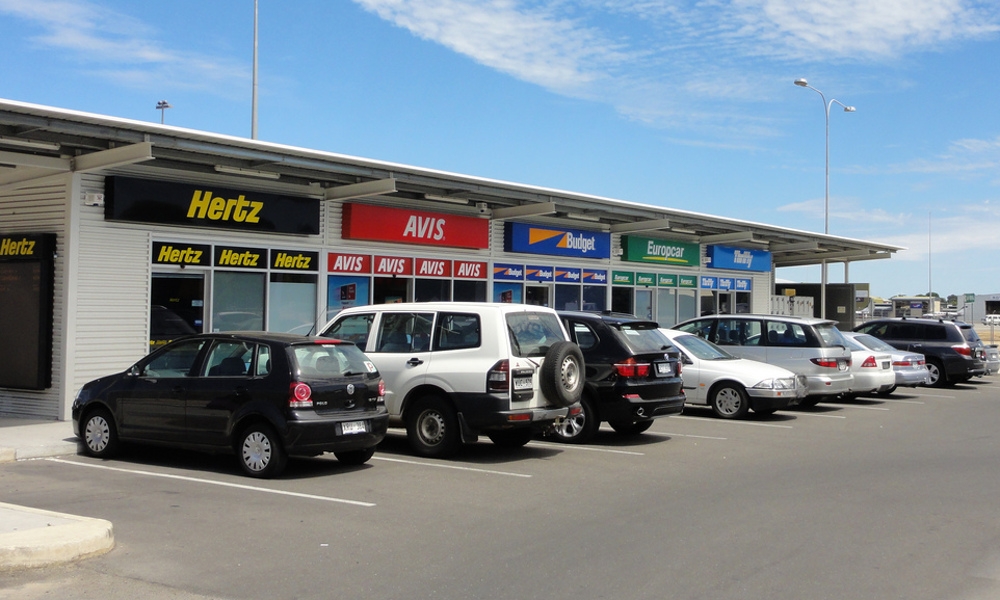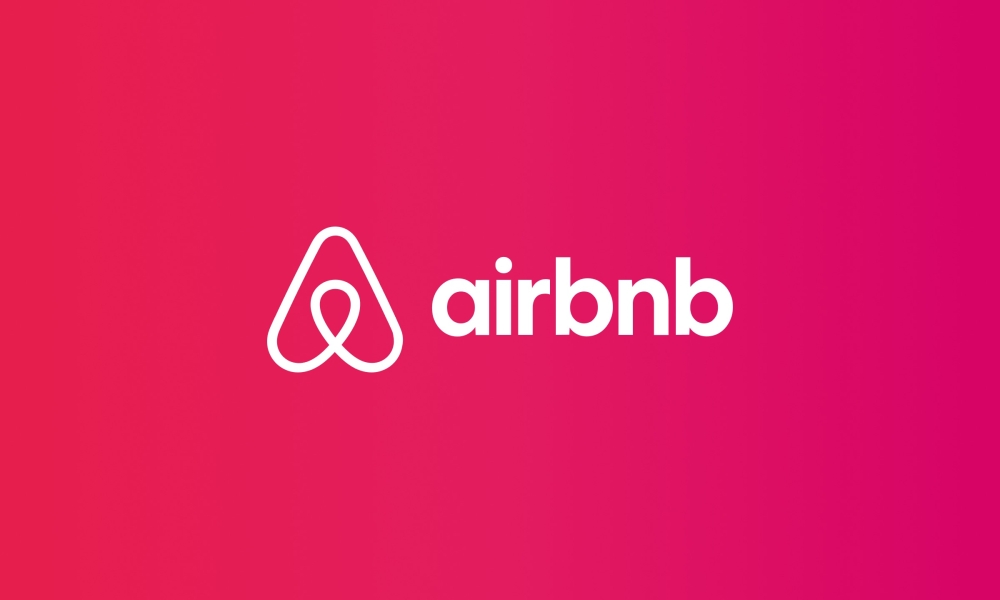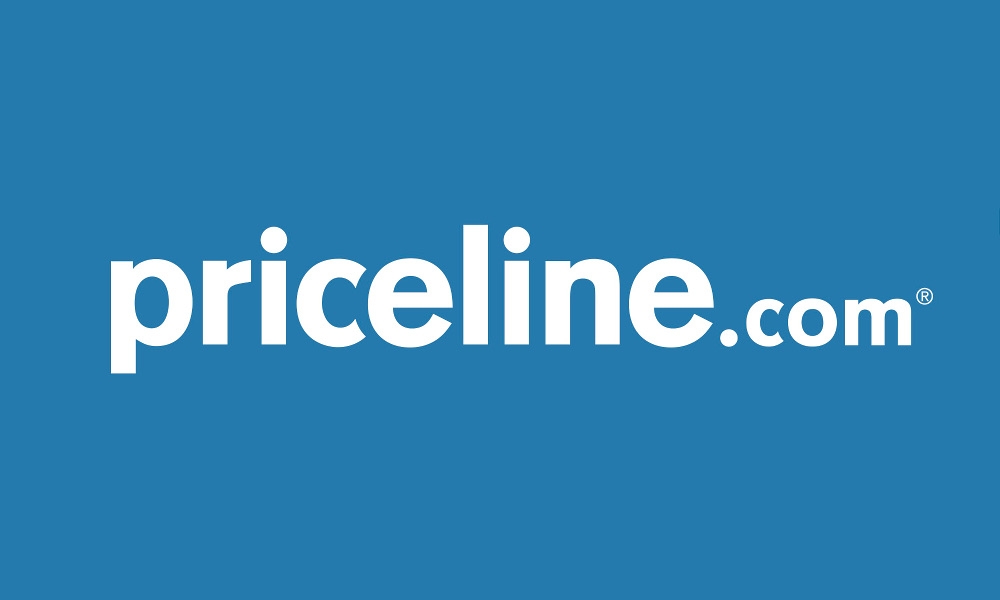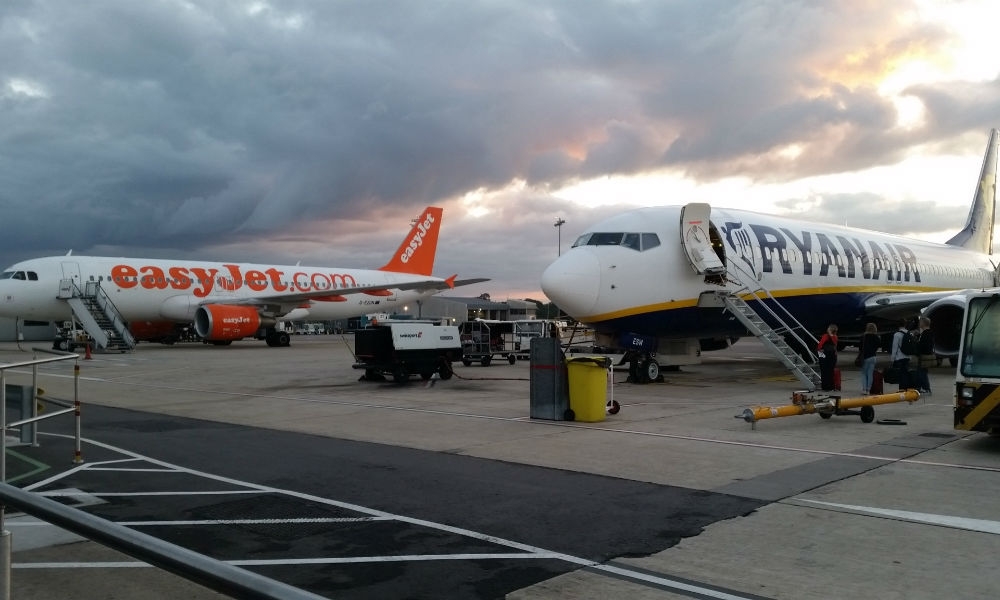

Photo credit eGuide Travel
Guide to: Cheap Car Hire
With more catches than a Norwegian fishing vessel, car hire firms abroad aren’t shy when it comes to relieving you of your hard earned cash. That’s why we’ve put together these top tips to help you navigate those “choppy waters†and slip through their “nets†- sorry!
It’s actually possible to get your hire car for as little as £3.50 per day, so don’t wait until you arrive. We’ll help you find the best prices, skip those hidden extras and cut your insurance excess to make sure your budget is exactly that.
Use comparison sites to find the cheapest option
With a comparison site you can search the entire market (or at least most of it) in no time at all. When you find the quote that’s right for you, they’ll redirect you to a separate car hire company or booking site to make your payment.
There are loads to choose from, but as a starting point here’s a few we’d certainly recommend. It’s worth looking at all of them as prices can vary depending on your destination.
You can search over 50 different companies with Skyscanner and use filters such as air-con, fuel policy, car size and more, to narrow down the options. Although the results will suggest they’re for drivers aged 21 to 99, typically there will be an additional charge if the driver is under 25 or over 75 which you’ll probably have to pay when you pick up the car.
Another one that looks across more than 50 car hire sites is Carrentals. Although it does have fewer filters to narrow down your search, you can still limit the results to include air-con and be either automatic or manual. Typically there’s an extra charge if you’re under 24 - payable on collection.
Also good on coverage is TravelSupermarket, searching more than 20 different companies. You can limit by car type, air-con, and even fuel type making it a great place to double check you’re not missing out on a really cheap offer. As with the first two, it covers drivers aged between 21 and 75 but warns there may be an extra fee, payable on collection, if you’re under 24.
Our final recommendation is Kayak, which let’s you filter by pick-up location, hire company, price, car type and fuel type. It won’t let you look specifically for full-to-full policies, but it searches over 20 different companies including all the market leaders.
Once you’ve completed your search and found the cheapest option, see if it can be beaten by booking direct or by using a cashback site. Although governed by stringent rules regarding transparency in their marketing, it’s possible that a comparison site could let a result through based on one of your filters (diesel fuel for example), but when you actually click through to book, the terms are different, so always double check before parting with your cash.
Finally, before you make your booking, always check the following:
Additional cleaning fees. You could find hidden extras such as a £15-£20 cleaning charge added at the end, and they can be quite naughty when it comes to comparing the difference between before and after so keep an eye out and possibly consider dropping by the car wash on your return.
Manual or automatic. In the states, automatic is the norm and won’t cost you extra, but in Europe the standard is manual so look out for hidden extras if you’re looking for a specific drive type.
Age restrictions. Usually you’re required to be over 21 to hire a car and if you’re under 25, expect to pay extra and have more limited options.
Pick-up location. Check where you’ll be picking up the car from. Some companies are based at the airport while others require you to take a bus to the car hire depot. This can be a real pain following a tiring flight, and can cost extra so compare costs with this in mind, as it may be more worthwhile to choose the airport option.
Book early for bigger savings
The golden rule with car hire is always book early; it could save you hundreds of pounds. If you book early, you could get the prices down to as little as a few pounds a day.
A quick search on Skyscanner found us a week’s car hire in Portugal (August 2017) for £14 per day, while a week in the same place for the May bank holiday next year was just £9 per day. There are even better savings to be found if you take your time and follow our guide, but booking early definitely equals savings and both of these are far less than you’d pay if you walked in on the day.
If you’re worried the price will drop, some sites offer free cancellation, but you’ll typically pay more for those bookings so it may not be worth it.
Look out for hidden fuel policy charges
A common trick for squeezing extra value out of you is to give you the car with a full tank that you pay for up front. You then return the car empty. The problem is they’ll often overcharge you compared with the local price of fuel and if you’re not planning to do 500 miles, you could end up really overpaying as they’ll rarely refund for unused fuel. Even if they do, look out for cheeky processing fees and always read the fine print. The best companies will offer you ‘full-to-full’ or ‘return as you found it’ policies, so you’ll only pay for what you use.
Searching by fuel policy
Some comparison sites and brokers help you to avoid hidden costs by only providing results based on “pay as you go†fuel consumption.
Enjoy Car Hire will quote you based on paying for the fuel you use. Prices change constantly so always compare with these additional providers to be sure you’re getting the best one.
TravelSupermarket, Carrentals & Skyscanner let you filter based on fuel policy but “full to full†policies can vary greatly in price, particularly in France and Spain so always make comparisons to ensure you’re getting the best price - at lest with these, you’ll only ever pay for what you use.
When searching with comparison sites, always double check that the policy quoted is based on the your original criteria. Though rare, there have been cases where the quotes haven’t matched and mistakes have been made.
If you opt for a “full to full†policy, make sure the tank is actually full when you pick up the car, but more importantly, make sure it is when you return it, you could get hit with a hefty charge if not and it could be as high as 10% more than local prices. Also, fill up near the airport, a full tank, followed by an hour and a half drive to the airport isn’t a full tank anymore!
When deciding on the cheapest car hire vs. the cheapest fuel policy, consider the distance you’re going to be travelling. If you don’t expect to drive more than 400 miles, choose the cheapest “full to full†deal. You could spend a huge amount on a “full to empty†alternative if you’re only planning to drive say 200 miles in a saloon or hatchback.
If there’s no alternative and “full to empty†is the only policy available to you, pick a smaller car. The smaller the car, the smaller the tank and the lower the price you’ll pay to fill it up (assuming you won’t use it all up on you holiday).
Standalone excess insurance requires a hefty deposit
While we are fans of standalone excess insurance for the huge savings, car hire companies don’t like to make it easy for you. They’ll often claim you still have to pay them, which is true, but it’s a deposit - typically €600-€1400 on a credit card.
Typically you’ll require a credit card not a debit or pre-paid card and you’ll need to have enough credit available! Make sure you have at least £500-£1200 credit plus any additional credit you think you’ll need for your day to day spending - you don’t want to exceed your limit. Also bare in mind that the card will likely need to belong to the person that made the booking so double check the policy if you think this could be an issue. If you don’t have a credit card, some companies will force you to take their cover as they won’t except deposits on a debit card and these can be considerably more expensive, particularly at the last minute.
If you have an accident, the money comes off your card. Hence the deposit, it gives them the ability to recover costs in the event of any damage being caused. You then claim back the cost with your own excess cover so keep all documentation to help with your claim.
Always be extra vigilant when inspecting the car and take photos if possible so you have a record. If you take out their insurance, you’ve got less to worry about as they sort out any problems. When they have to pay, they’ll often let dents and scratches slip through the net, but if you take your own excess insurance, you can bet they’ll charge you for everything, so take photos of any marks you see and report anything you find before leaving with your car.
Exchange rate risks if your deposit is withdrawn can leave you out of pocket. Most companies simply ring-fence the funds so you can’t spend them, but they don’t actually come off your card. A couple of them however, including Alamo, Enterprise, Hertz and National, may actually withdraw the funds then return them if not required. If there are any major shifts in the exchange rate, you could find yourself out of pocket. On the other hand, if the rate shifts in your favour, you’ll actually make money on your deposit so there’s a silver lining if your in the know when it comes to exchange rates.
Grab a DVLA code before you travel
In 2015, the DVLA introduced a personal code for hiring a car in the UK or abroad. Essentially it’s so hire companies can check for points as paper licences are going for photocard holders with licences issued after 1998.
In reality, most firms don’t ask for the code - a twitter poll of over 1700 people in February 2016 revealed that only 3% were asked abroad and 14% in the UK, but it still makes sense to get one, just in case.
To get a code, you’ll need to request it from the Share Driving Licence online service via Gov.uk or you can call them on 0300 083 0013. You’ll require your driving licence number, national insurance number and the postcode on your licence.
Download a PDF or take a photocopy of your licence too, but you’ll still need a code that you can give to the rental company when you collect your car. It essentially gives the company temporary access to you licence information. Be aware that the code only lasts 21 days so factor that in when timing you booking.
The AA also advises that you take the paper counterpart of your licence in addition to your photocard, just in case. It warns that some hire companies and even traffic police abroad, may insist on seeing your paper licence - not ideal if you’ve left it at home.
A few things to consider:
Do hire companies really check the paper licence?
Over here, car hire firms are legally required to check your full licence including the paper counterpart until it was scrapped in exchange for a DVLA Code (make sure you get one). When abroad, it varies by country. Some firms used to ask to see your paper licence to check for fines and points so they’ll probably be the ones that will require a code so get one anyway just to be safe.
I’ve only got a paper licence!
If you passed your test before 1998, you’ll only have a paper licence (unless you’ve since renewed it). Don’t get rid of it despite the changes, its different to the photocard paper counterpart and is still valid as your full licence, but be aware that points and fines since 8th June 2015, are now recorded online, so you’ll still need a code.
Is there an alternative to the DVLA code?
You can allow the hire company to contact the DVLA and check your details over the phone, but this can be very time consuming when you just want to get on with your holiday, and it can also be very expensive when the extra service charges and international call rates start to mount up, better to get a code. Remember, you can call them on 0300 083 0013.
Can I use my code multiple times?
No, each code is for solo use, but you can have up to 15 of them at a time
What should you do with your paper counterpart?
The DVLA advises drivers to destroy the paper counterpart of their photocard licence, but companies such as the AA suggest otherwise. Keep hold of it just in case you experience problems with the online service but DO NOT destroy your traditional paper licence if issued before 1998.
Why all these changes?
The counterpart was introduced to show information that didn’t fit on the photocard. It was abolished in favour of storing the info electronically in 2015. At a cost of £20 to replace the counterpart, it’s a decent money saving move too.
Booking with free cancellation
As a general rule of thumb, the earlier you book, the better - especially at peak times, but it’s not always guaranteed. If you think the price could drop after making your booking perhaps due to sales or currency fluctuations, some companies offer free cancellation. Typically you’d need to cancel at least 72 hours ahead of schedule, but if the price drops outside that period, you can always cancel and rebook at the lower rate.
Certain comparison sites, like Skyscanner, allow you to filter by “free cancellations†making it simple to choose this option, but always make certain you’ve read the full terms of the hire company as some charge for cancellations and comparison sites have been know to make mistakes on rare occasions.
It’s important to remember that companies who offer free cancellation are often more expensive, so you could find yourself paying more for a flexi-booking. Always triple check the terms and conditions to make sure there are no hidden costs like admin fees or refund charges.
If you regularly hire a car, consider annual excess cover
As a general rule, if you hire a car more than once a year, you’d be better off with an annual excess policy. Likewise, if you’re going away for more than 2 weeks, an annual excess policy could also be cheaper depending on the hire company.
If you’re going to search the comparison sites, try Moneymaxim, it’s covered by the FSCS (Financial Service Compensation Scheme), which protects you’re money if a firm goes under. You can filter by “annual excess†policies to see what’s available.
Cut the cost of child seats
With prices starting from around £5 per day, getting your child seats from the hire companies can be very expensive. Child seats are compulsory in Europe (as they should be) for under-3’s and in some cases, booster seats are required for under-12’s.
Don’t forget to factor this into your booking comparison when deciding on the cheapest option. It could make more sense to take your own seat, or rent a seat independently from the car hire firm. Some airports have stalls where seats can be rented at half the price while other rental firms will even deliver the seats directly to the airport at no extra cost. If travelling to the US, check out Babysaway.com. They have over eighty locations and deliver to airports including Fort Lauderdale in Florida. You should also check out Trunki BoostApak, a rucksack that doubles as a booster seat if you’re travelling with 4-12 year olds.
Use your phone as a free sat-nav in over 190 countries
Hire companies can charge a small fortune to include a sat-nav (something we’re all pretty reliant on when we head abroad), but most of us carry a smart phone with us anyway, and they have a built in GPS. A clever way to turn it into a sat-nav, with local maps, is to download Navmii, a free app available for Android, iPhone, Blackberry and Windows Phones, which turns them into a data-free sat-nat, pre-loaded with maps, voice prompts and route planning.
Its not as smart as a pre-installed TomTom or Garmin, and you won’t get the live updates without turning on your data, but it’s pretty useful for a one-ff, particularly when its saving you as much as £50 per week.
Most importantly, unlike similar apps such as Google Maps, once you’ve downloaded Navmii, it doesn’t require data to find your route as they’re stored offline. It uses your phones GPS to find you.
Can a companies foreign website cut the cost of your car hire?
To get the cheapest car hire, comparison sites such as Skyscanner, Carrentals, Kayak or TravelSupermarket are your best bet. But if you’ve got your heart set on one of the big brands (if you collect loyalty points for example) this trick could offer big savings and can sometimes beat comparison site prices for that company as well.
This tip mainly works for hire in Europe, although it occasionally works elsewhere too. Basically, you book your car hire with a specific company via one if its international websites rather than its UK site.
How it works
Type the company’s web address into your browser for example: http://www.europcar.co.uk. Then change the extension to one from a different country eg. France is .fr so its https://www.europcar.fr - (see a full list of extensions here). This will take you to the company’s foreign site. Search for the car you want (you may need to be proficient in that language or use a translator - some browsers will offer automatic translation). The price will be in the local currency so check the equivalent in GBP. Bare in mind that Google Translator and similar services could potentially misinterpret some words and phrases, so when it comes to checking the terms, bare that in mind if you don’t speak the native language. Some companies foreign sites have limited mileage or different fuel policies so they’re not always like for like.
Who it works with
In the case of 5 of the bigger firms: Sixt, Hertz, Europcar, Budget and Avis, this is a perfectly legitimate way to make a booking with them as long as it’s within Europe. Outside the EU it’s a bit more complicated. Budget and Avis won’t allow customers in the UK to book via their US site, where Sixt will so hunt around.
How much you could save
This varies, depending on whom you book with and which of their international sites you’re booking through, the savings could be significant, or they could be negligible. You’ll want to invest a bit of time into this and make sure you do a thorough comparison so put the kettle on.
Can it work for the UK
Not always, but sometimes! For example, we did a check and 3 days hire from Stanstead Airport came in at £73 via Hertz, but through their French site, it was just €86 (£60) so a saving of over ten pounds.
Is car hire really necessary?
You’ve probably got a car at home so you’d be forgiven for assuming you’ll need one on holiday too, but it could become un unnecessary, expensive, unused waste of money, so consider these points:
How much are local taxis?
If the main aim of your holiday is to soak up the sun, sea and Sangria, a few trips in a taxi could end up much cheaper. You can get a pretty good idea of what prices to expect by using the price comparison site RideGuru that gives you an estimate for the cost of journeys all over the world.
How much is public transport?
New York is a great example - think London parking only worse. You’ll be using the Subway or taxis to get anywhere so for price; public transport wins every time. There are loads of European cities with great public transport networks too, so do your research before forking out for a car you won’t really use.
You could take your own car
If you’re heading to Europe, taking your own car could be an option. All UK insurance car policies provide the relevant cover required by law across all EU countries, but its worth checking the distance you’ll likely travel, the cost of fuel and the cost of crossing the channel to get into Europe, all these can add up.
Get extra protection with a package holiday
ATOL protection provides you with financial protection when booking a holiday as part of an official package. So you’ll get your money back in the event your ATOL-licensed travel agent goes bust. This protection covers flights and accommodation or car hire booked with the same company as long as the bookings are made within a 24-hour window, even if not part of an official package.
This provides an additional way to have extra cover for your car hire if you’re planning to fly to your destination. Bear in mind that while package holidays tend to be more expensive, if the difference is negligible, it’s probably worth going with the package rather than booking everything separately as they’ll offer more comprehensive cover.
Do you really need a convertible?
There are a series of classes when it comes to car hire and though they differ from company to company, the basic concept remains the same; the smaller and less fancy the car, the cheaper it is to hire. In summer, convertibles command a serious premium.
If they offer you an upgrade, compare the various features available. A top of the range Economy might be better than a bottom-range Compact.
Don’t always assume that the lower the range the cheaper either, you’d be surprised to know that estates and people carriers can work out cheaper than the smaller alternatives - its all dependent on demand in the area you’re hiring from.
If you’re after a specific model and it’s not available via the price comparison sites or an online broker, try going direct. You might find that they’ve got what you’re looking for and if you don’t ask, you often won’t get.
The Classes:
Mini
A 2-door car with a small engine that might fit 4 people at a squeeze, but it won’t leave much room for luggage. Examples include Peugeot 107 and Ford Ka
Economy
A 2 to 4-door car that would typically take 4 people with a standard amount of luggage. Good for a family (2 adults, 2 kids). Examples include Renault Clio and Vauxhall Corsa
Compact
A 4-door car that will take five and a couple of bits of luggage. Examples include Peugeot 3017, VW Golf and Ford Focus
Standard
A 4-door car with a mid-size engine. Will comfortably fit 4-5 adults plus a decent amount of luggage. Automatic will typically cost extra. Examples include Opel Insignia, Audi A4 and Renault Laguna
Full-size
A 4-door automatic, will comfortably take 4-5 (or more) with plenty of space for luggage. Power steering, air-con etc typically comes as standard. Examples include Citroen C6 and Mercedes C-Class
Prestige
A sportier car (though don’t expect a Ferrari), with a large engine pus all the extras. Examples include Mercedes CLS and BMW 5 Series
Planning a lot of driving? Opt for unlimited mileage
If you’re intending to do some serious miles, make sure you’re booking includes unlimited mileage.
If you’re planning to cross borders internally (US) or externally (Europe), ensure you’re policy covers you for border crossings.
Don’t pay huge extras for additional drivers
If you plan to have more than one person doing the driving, make sure you clarify that in advance. If you add an extra driver once you get there, it will cost you considerably more with driver add-on’s costing upward of £8 per day. For week, £56 is quite a bit extra on your total bill.
Include the cost of an extra driver in your homework. It may be cheaper to take a more expensive car with a lower fee for extra drivers when the final tally comes in. It’s worth having a look at the comparison sites too as they’ll often be able to find you a better deal.
Will I require an international drivers licence?
While a UK licence is accepted throughout Europe, heading further afield might require an International Driving Permit, so check. They are often required or recommended, particularly in the US, India and Thailand. If you don’t have one, you risk issues with the local authorities and may even be refused hire.
There are 2 types of IDP (1926 and 1949 Conventions) and the right choice depends where you’re going. They both cost the same: £5.50 from the Post Office, £8.50 from the AA or you can get one for £8 from the RAC. Steer clear of websites pushing “International Driving Licences†as these are not legitimate documents!
Additional discounts for package purchases
You may find there are additional discounts available if you book you car hire, flights and hotel with the same company at the same time. Expedia are a great example here, though just because they offer discounts, doesn’t necessarily mean they’re gong to be the cheapest.
You could also find a cheaper deal through the airports (Heathrow, Gatwick, Stanstead, Luton) or you might find the budget airlines like Ryanair or easyJet offering special discounts, so after completing you comparison checks, head over to their websites to see if you can beat the best price you’ve found.
Fly-drive could be better value
Heading to the US? A ‘fly-drive’ package could be cheaper. This is where they bundle together flights and car hire and they’re sometimes cheaper than hiring separately. For tips on haggling, check out our Cheap Package Holidays guide.
Always use comparison sites to compare your ‘fly-drive’ quote, don’t just assume it’s cheaper. Orlando for example has a huge number of car hire options at the airport, so you can find absolute steals by comparing via TravelSupermarket, Carrentals, Skyscanner or Kayak.
The added bonus of a ’fly-drive’ package is that is includes extra protection with ATOL.
Speak the language? Bargain for better rates
If you speak the local lingo, check the local car hire sites at your destination to see if you can find a better deal and see if you can bargain down the price.
When paying, make sure you don’t let them convert it into GBP as you’ll probably loose out on the exchange rate, as they’ll likely give you a poor one. Your best bet is to pay with a cheap travel money card - see our Cheap Travel Money Card guide for more info.
If you’re fluent in the local tongue, haggling can be very effective for more expensive cars and longer stays so give it a go.
Pay extra close attention to van insurance
Booking a van when you head abroad require extra vigilance. Consider these potential insurance issues:
Breakdown
Most vans have done a lot of miles. The heavy use means they have a much higher chance of breaking down. While some policies include breakdown cover, it’s often cheaper to get separate cover.
Contents
As vans are distinctly lacking in the windows department, they tend to be more alluring to thieves. Make sure you policy includes contents cover for anything left overnight. If using a roof rack, don’t assume what’s up there is covered - make sure.
Use a credit card
Use a credit card to pay for you car hire if possible. Provided the total cost is more than £100, you have the added protection of Section 75 so the credit card company is also liable if things go wrong.
This is particularly valuable if you have problems with a foreign car hire company - but always make sure you pay of the card in full each month to avoid charges.
Make a note of the hire company’s emergency number
Most hire companies will have a 24h emergency number in case you have an accident or break down. Make sure you have it somewhere safe in case the worst happens.
Know the driving regulations before you go
You can find driving regulations by country on the AA website. It’s worth familiarising yourself with them (particularly any that differ from the rules over here) before you head off.
Key Points:
- Which side of the road should you drive on?
- Children over 10 may be able to sit in the front, but it varies from country to country so check before you travel.
- If you wear glasses or contacts, Spanish law requires you to carry a spare pair in the car.
- Some areas of Spain only allow parking on the side of the street with odd-numbered properties on odd-numbered days of the month! In Hungary, its illegal to use your full-beam at night in built up areas.
- In France, a sat-nav that identifies the position of speed cameras is illegal. If you’re bringing one from home and it has this function, you should turn the function off to avoid problems with local law enforcement.
Get your rental back on time to avoid charges
Make a note of the rental return time. Getting your car back on time and in good condition can avoid unwanted charges.
Make sure you hang about for the inspection. If that means heading back to the drop off point a little earlier, do it. You don’t want small scratches being blamed on you if they’ don’t exist. If in doubt, take photos for your records.
If you have an accident, make sure you keep hold of all repair bills, as they may be essential for making a claim.
Make sure you get all the paperwork done on the spot and keep the deposit slip so no additional charges can be added later. Also keep all the paperwork safe even after your holiday in case any disputes arise.
Check you statements when you return
When you get back, and over the course of the next few weeks, regularly check you credit card and bank statements to ensure that no additional charges get added and that you’ve received your full deposit back.
All the photos and paperwork must be kept safe until your certain that the deposit has been returned in full and that no charges are likely to be added. A few weeks should be enough time, but there’s no harm in waiting a little longer just to be safe. This is just another reason why paying with a credit card is so valuable. If you do get rid of the paperwork too soon and dispute arise, you have the added protection of Section 75 as additional backup.
Ensure you get cheap airport parking
Airports typically make more money from shopping and parking than they do from the flights so don’t leave arranging parking to the last minute as you’ll pay through the nose.
Booking in advance, even on the day, could save you a bundle. See our Cheap Airport Parking guide for tips on bagging a bargain when it comes to storing your car.
Border crossings from non-EU countries
Beware that if you hire a car in a non-EU country and plan to drive across the border to a EU-country, you may run into difficulty.
A new EU law now bans all EU citizens from driving non-EU registered cars in EU countries (that’s a lot of EU’s!!).
Some non-EU car hire companies will have EU-registered cars, so if you plan on crossing borders, call ahead to make sure you’re covered, It may cost you extra, and it’s not guaranteed, but will save you a lot of hassle in the long run.
Heading to the Outback? Hire campervans dirt-cheap
Some firms in Australia and the US will let you hire motor homes and campervans for less than $1 a day.
Australian site Transfercar has a great selection at some of the cheapest prices. Also check out Vroomvroomvroom which also covers Canada, the US, New Zealand and Europe or Apollo - some days you might even find you can hire for free!
These are all relocation hires, so you’re picking up and dropping off at separate locations. It does mean that the options are more limited, but there are still plenty of journeys you could do and the savings more than make up for it.
Pay for extras with local currency
A lot of shops at overseas airports ask if you’d like to pay in local currency or GBP. If you choose GBP, they do the exchange rate for you and its unlikely to be favourable (to you). If you’ve got a good overseas card, always choose local currency as your card will do the exchange rate and it will be much more favourable.
Ensure the policy is in your name
Once you’ve completed your booking, double check that the policy is held in your name and that spelling is an exact match for your drivers licence. If errors occur (and it can happen if you’re in a rush), you could find yourself having to re-do the booking on site and that’s going to cost you far more.
Similar blog posts
From the UK's most popular travel bloggers

Guide to: Airbnb for beginners
6th July 2023 by Paul
Airbnb is an amazing tool that can dramatically reduce your annual travel spend. I’m a self-confessed Airbnb junkie, having notched up over 21 Airbnb stays in 8 countries. It can seem a bit daunting for the beginner, so I thought I’d run through the service from my own perspective to help tip you over and make that first booking. What is Airbnb? Airbnb started life as a DIY B&B service. Anyone with a spare room could rent out that space for a night or two. The host makes a...

Guide to: Secret Hotels
27th June 2023 by Emma
So you want to stay at a top hotel, but those prices are ridiculous right? There is a way. You can choose an unnamed hotel at a huge discount. A range of sites including Priceline, Hotwire and Lastminute.com allow you to book what they call ‘Secret Hotels’. You won’t know which hotel you’ll be staying at until you pay, but these top tips can help you get an edge on the competition and narrow down your options. 5* hotels at 3* prices anyone? Secret hotels can save you a...

Guide to: Priceline.com Bidding
27th June 2023 by Emma
With US site, Priceline, you can get huge discounts on hotel stays across the globe and our guide will give you the tools to beat their system and secure the lowest bids. Done correctly, this is a great way to get top end hotel stays without blowing your budget, particularly if you’re flexible about where you stay. How it works While Priceline will let you book hotels the traditional way, comparison sites like TripAdvisor, TravelSupermarket or Trivago are a much better bet if...

Guide to: Winter Sports Travel Insurance
27th June 2023 by John
While 1 in 5 brits skip travel insurance when headed abroad, you'd be crazy not to grab insurance before heading to the slops. Obviously, the risk of injury is far greater when hurtling down the side of a mountain than sipping a beer by the side of a pool. If you’ve booked your winter adventure, but not your travel insurance, do it now! Much of what we've covered in our guide to cheap travel insurance stands here, but I thought I'd pull out the main points that relate to winter sports. And...

Guide to: UK Hotel Breaks
27th June 2023 by John
Never overlook the UK as an alternative to heading abroad when you need to get away. Whether you’re living it up in London, relaxing in the Cotswolds or dipping your toe in coastal waters of Cornwall, there are loads of useful tips you can use to help slash the cost of your bill. Here we run through the key steps for bagging a great bargain, plus clever ways to save from special rates and haggling to university stays, riverboats or even sleeping in the trees! Do your research to...

Guide to: Cheap Package Holidays
27th June 2023 by Paul
Did you know that it was us Brits who invented the package holiday? Thomas Cook himself organised the first "tour" that included accommodation and flights in one convenient package. Fast forward to today, and it's still a uniquely British affair. The popularity of the package holiday has waxed and waned over the years, but post-pandemic it's going strong due to it's convenience and strong consumer protections.And what's not to love? One simple price including flights, transfers, travel...

Guide to: Cheap Flights
13th March 2024 by Paul
If you wait until the last minute, flights can get really expensive, but plan ahead and book smart and you can really reap the rewards. Regardless of whether you’re flexible or looking for specific dates and destinations, these helpful hints will help you slash the cost of taking to the skies. Check comparison sites to cut costs if you know when and where you’re going If you already have an itinerary, don’t go direct to an airline; use a comparison site get all the info you...
